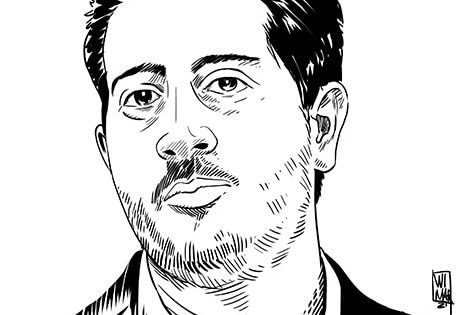About the relaxing of his prison conditions, journalist José Antonio Torres said, "This is not what I was pursuing. My goal is freedom. I am not, and have never been, a spy."
The Inter American Press Association (IAPA) today (23 March 2015) welcomed a change in the terms of imprisonment of Cuban journalist José Antonio Torres, who had been sentenced in 2011 to 14 years on a charge of spying.
The new rules will allow Torres to work and visit his home. He had held responsible posts in the official press and was correspondent of the newspaper Granma in Santiago de Cuba province. His case was denounced in the report on Cuba presented earlier this month during the IAPA meeting in Panama City, Panama, by Yoani Sánchez, the regional vice chair for Cuba of the Committee on Freedom of the Press and Information.
Torres was arrested in February 2011 and after an intense search of his home and rigorous interrogation, a court sentenced him to 14 years in prison for espionage.
Sánchez, editor of the online newspaper 14ymedio, reported that on March 9 Torres was informed of the change that placed him under a “minimum severity regime”. He was transferred from the Boniato prison to another penitentiary known as “the prison of confidence,” located in the Mar Verde highway industrial zone in Santiago de Cuba, where Torres is working in the library.
The chairman of the IAPA Committee on Freedom of the Press and Information, Claudio Paolillo, editor of the Montevideo, Uruguay, weekly Búsqueda, declared, “While we see with pleasure the flexibility in the terms of imprisonment that moderately favor the journalist, we repeat our demand that Torres be released immediately and unconditionally and that all the charges against him be dropped.”
For his part, IAPA President Gustavo Mohme, editor of the Lima, Peru, newspaper La República, recalled that during an IAPA meeting with officials of the U.S. State Department in Washington, D.C., on March 16, the organization had stressed the need for free speech and press freedom to be relevant issues on the agenda of the new diplomatic relations between the United States and Cuba, and it urged the release of Torres from prison, and those of independent journalists Ángel Santiesteban, in jail since December 2012, and Yoennis de Jesús Guerra, since October 2013.
According to what Torres was told the “minimum” imprisonment terms had been approved by the Council of State on February 23 and this was subsequently communicated to the Interior Ministry’s Prisons Department. The decision then occurred just a few days after 14ymedio published a lengthy report on the case.
The first time Torres will enjoy a visit with his family will be 60 days after his new term was announced. He will be able to be at his home from Friday, April 24 at 4:00 p.m. until Monday, April 27. After that his passes will be every 45 days, for the same duration.
In telephone calls to 14ymedio Torres declared, “This is not what I was pursuing. My goal is freedom. I am not, and have never been, a spy.” However, he said he was relieved to be able to visit his home and be again with his relatives and friends.
“I do not qualify under any definition of that charge,” said Torres, adding, “The Cuban government publicly favors the causes of Edward Snowden and Julian Assange, who have published millions of secret documents of various security agencies of the United States,” while “they have me serving a sentence even though I have never received any training as a spy nor have I disseminated or had classified documents.”


